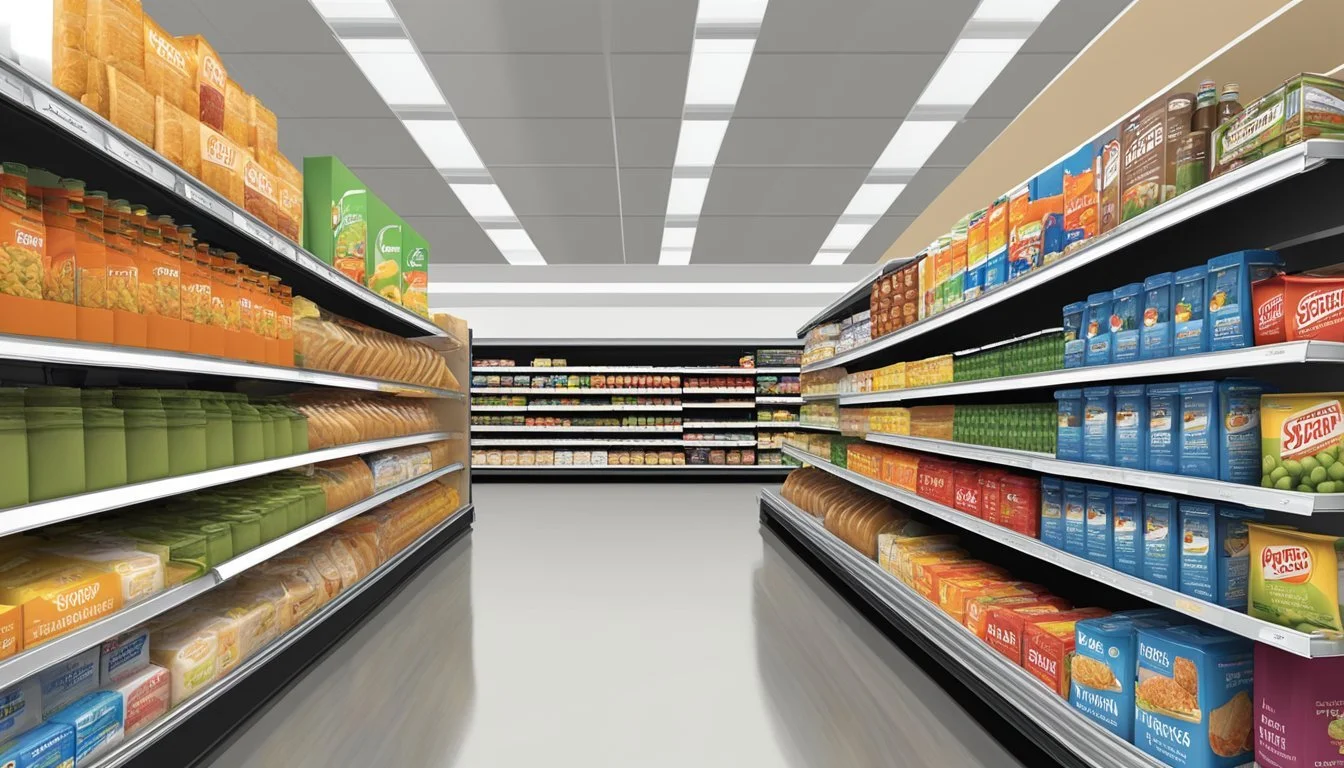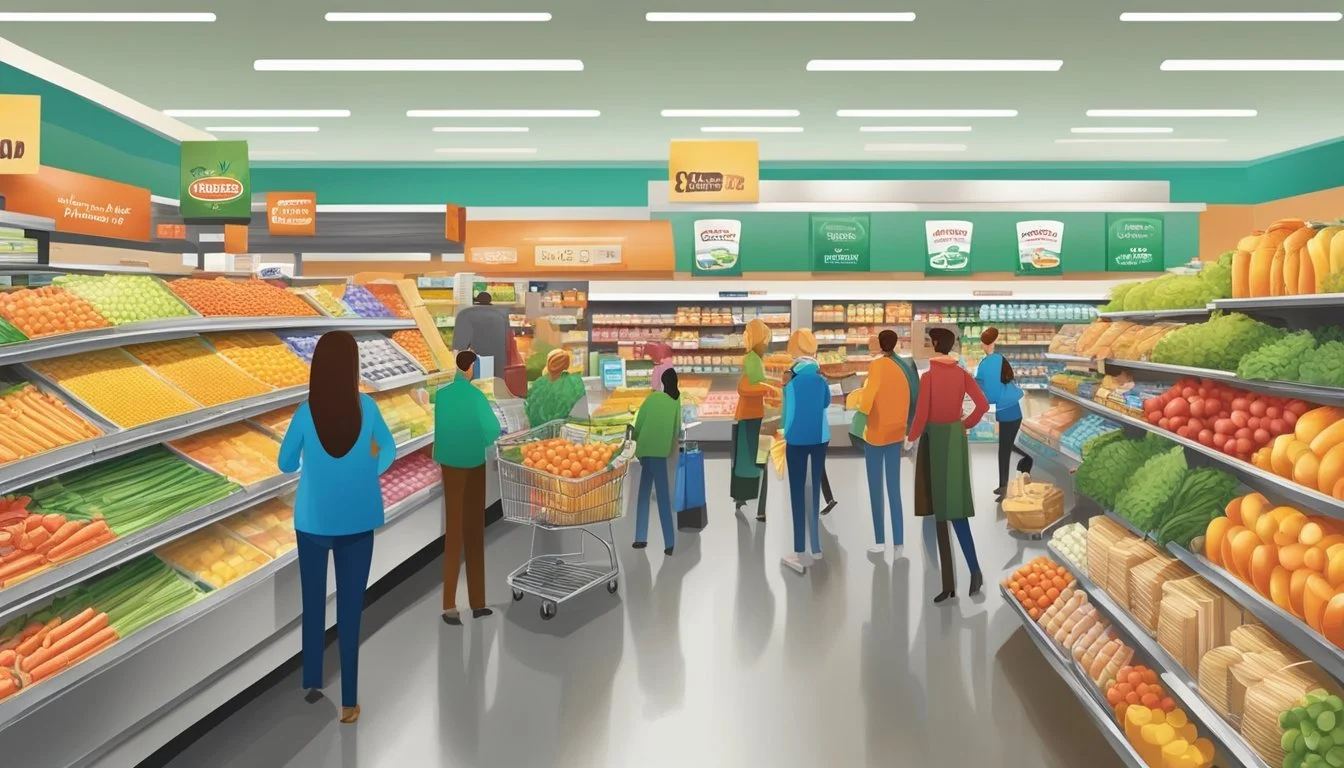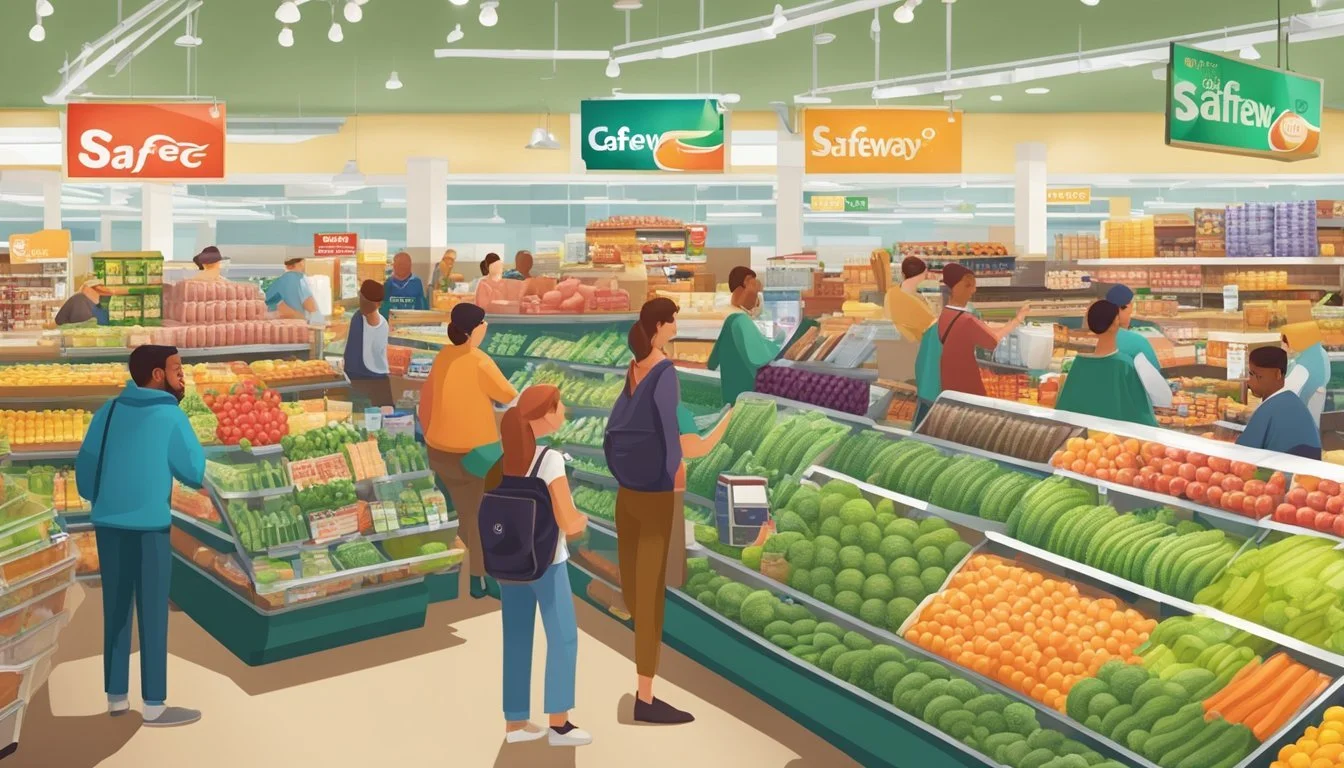Safeway vs WinCo Foods
A Comprehensive Comparison of Prices, Quality, and Selection
When it comes to grocery shopping, finding the right balance between price and quality is crucial. Safeway and WinCo Foods are two popular supermarket chains that offer different shopping experiences and value propositions to consumers.
WinCo Foods consistently outperforms Safeway in terms of overall pricing, with customers potentially saving up to 25% on their grocery bills. This significant price difference can translate to substantial savings for families over time. WinCo achieves these lower prices through various cost-cutting measures, including a no-frills store layout and a focus on bulk items.
While Safeway may have higher prices on average, it often provides a wider selection of products and brands compared to WinCo. Safeway stores typically offer a more upscale shopping environment, with additional services like pharmacies and floral departments. The choice between these two grocery chains ultimately depends on individual priorities, whether it's maximizing savings or enjoying a broader range of options and amenities.
History and Overview
Safeway and WinCo Foods represent two distinct approaches to grocery retail. Both chains have evolved over decades to become significant players in the supermarket industry, each with its own unique history and business model.
Safeway's Background
Safeway's roots trace back to 1915 when M.B. Skaggs purchased a small grocery store in American Falls, Idaho. The company expanded rapidly, adopting the Safeway name in 1925. By 1928, Safeway had grown to 2,020 stores across the United States.
During the Great Depression, Safeway introduced innovations like price labeling on items and nutritional information. The company continued to grow through acquisitions and expansion throughout the 20th century.
In 2015, Safeway merged with Albertsons, creating one of the largest food and drug retailers in the country. Today, Safeway operates as a subsidiary of Albertsons Companies, maintaining its brand identity in many markets.
WinCo Foods' Evolution
WinCo Foods began in 1967 as a discount warehouse grocery store called Waremart in Boise, Idaho. Founded by Ralph Ward and Bud Williams, the company focused on providing low prices through a no-frills shopping experience.
In 1999, Waremart changed its name to WinCo Foods, an acronym for Winning Company. This rebranding coincided with the company's employee stock ownership program, making it primarily employee-owned.
WinCo has steadily expanded its footprint, particularly in the western United States. The chain is known for its large stores, bulk food sections, and commitment to keeping prices low through efficient operations and direct relationships with suppliers.
Unlike Safeway, WinCo remains a privately held company, allowing it to focus on long-term growth strategies rather than short-term profits for shareholders.
Store Locations and Accessibility
Safeway and WinCo Foods have distinct geographical footprints that impact their accessibility for shoppers. Each chain's store distribution affects consumer options in different regions.
Geographical Presence of Safeway
Safeway boasts a widespread presence across the United States. The chain operates over 900 stores in 17 states and the District of Columbia. Safeway has a strong foothold in the Western U.S., with numerous locations in California, Washington, and Oregon.
The company also maintains a significant presence in:
Arizona
Colorado
Maryland
Virginia
Safeway stores are often found in urban and suburban areas, making them convenient for city dwellers and commuters. Many locations offer extended hours, with some stores open 24/7 to accommodate varying schedules.
WinCo Foods' Store Distribution
WinCo Foods has a more concentrated store network, primarily serving the Western and Southwestern United States. The chain operates over 130 stores across 10 states. WinCo's core markets include:
Idaho (where the company was founded)
Washington
Oregon
California
In recent years, WinCo has expanded into:
Arizona
Utah
Texas
WinCo typically builds larger format stores in suburban areas. These locations often feature ample parking and are designed to accommodate bulk shopping trips. While WinCo has fewer total stores than Safeway, its locations are strategically placed to serve densely populated regions.
Price Comparison
Safeway and WinCo Foods employ different pricing strategies to attract customers. Their approaches impact overall costs for shoppers and reflect each store's business model.
Safeway's Pricing Strategy
Safeway focuses on a mix of regular and promotional pricing. The store offers weekly sales and discounts on select items. Safeway's Club Card program provides additional savings for members. Many shoppers find good deals on sale items, but regular prices tend to be higher than discount chains.
Safeway also uses dynamic pricing, adjusting costs based on demand and competition. This can lead to price fluctuations. The store's pricing strategy aims to balance profitability with customer satisfaction.
How WinCo Foods Keeps Prices Low
WinCo Foods positions itself as a price leader in the grocery market. The store maintains consistently low prices across most products. WinCo achieves this through several cost-cutting measures:
• Bulk buying and efficient supply chain management • Limited advertising and no loyalty programs • Self-bagging and reduced labor costs • No-frills store design and minimal decor
WinCo's business model prioritizes volume sales over high profit margins. This approach results in significant savings for customers. Many shoppers report 20-30% lower grocery bills compared to traditional supermarkets.
WinCo's bulk food section offers additional savings. Customers can purchase exact quantities needed, reducing waste and cost.
Product Range and Quality
Safeway and WinCo Foods offer distinct product selections, catering to different customer needs. Both stores provide a range of groceries, but their focus and variety differ significantly.
Safeway's Product Selection
Safeway boasts a wide array of high-quality products, including an extensive selection of organic and specialty items. Their produce section features a diverse range of fresh fruits and vegetables, often sourced from local farms.
Safeway's meat department offers premium cuts and a variety of prepared options. The store also carries a substantial selection of name-brand products across all categories.
Safeway's bakery and deli sections are known for their freshly made goods and prepared meals. The store emphasizes quality and variety, making it a go-to for shoppers seeking specific or gourmet items.
WinCo Foods' Product Diversity
WinCo Foods focuses on offering a broad selection of products at competitive prices. Their bulk foods section is a standout feature, allowing customers to purchase exactly the quantity they need.
WinCo's produce department provides a mix of conventional and organic options. While the selection may be more limited than Safeway's, the quality remains good.
The store carries a large assortment of generic staples alongside name-brand products. WinCo's meat department offers standard cuts at affordable prices.
WinCo's bakery produces fresh bread and pastries daily. The store's overall product range caters to budget-conscious shoppers who prioritize value over extensive variety.
Customer Shopping Experience
Safeway and WinCo Foods offer distinct shopping experiences tailored to different customer preferences. Each store has unique approaches to customer service, store layout, and overall atmosphere.
Safeway's In-Store Experience
Safeway provides a polished and organized shopping environment. The stores are well-lit with wide aisles, making navigation easy for customers. Product displays are neatly arranged, and signage is clear.
Safeway offers a full-service experience with dedicated customer service desks and baggers at checkout. This appeals to shoppers who value convenience and assistance. The stores often have in-house pharmacies, florists, and bakeries, catering to diverse customer needs.
Families appreciate Safeway's clean and welcoming atmosphere. The stores typically stock a wide range of national brands alongside their own Signature Select products, giving customers ample choices.
WinCo Foods' Customer Approach
WinCo Foods embraces a no-frills warehouse-style layout. The stores are spacious but more utilitarian in design. This approach allows WinCo to keep costs down and pass savings to customers.
The company emphasizes a self-service model. Shoppers bag their own groceries, which can appeal to budget-conscious consumers who don't mind a more hands-on approach. WinCo's bulk food section is a standout feature, allowing customers to purchase exactly the amount they need.
WinCo stores are often open 24 hours, catering to customers with non-traditional schedules. The company focuses on providing low prices rather than additional services, attracting smart shoppers looking to stretch their grocery budget.
Sales and Promotions
Safeway and WinCo Foods employ different strategies to attract customers and offer savings. Safeway focuses on marketing campaigns and loyalty programs, while WinCo emphasizes everyday low prices and bulk discounts.
Safeway's Marketing Campaigns
Safeway runs frequent sales and promotions to draw shoppers. The store offers a Just for U loyalty program, providing personalized digital coupons and deals. Customers can save up to 20% on select items through this program.
Safeway also features weekly ad circulars with sale prices on various products. These often include buy-one-get-one-free deals and discounts on seasonal items. The store occasionally uses loss leaders, selling certain products below cost to attract customers.
Safeway's Club Card provides additional savings opportunities. Cardholders receive automatic discounts on marked items throughout the store.
WinCo Foods and Discounting
WinCo Foods takes a different approach to pricing and promotions. The store focuses on maintaining consistently low prices rather than running frequent sales or loyalty programs.
WinCo's bulk food section is a key feature, allowing customers to purchase exactly the amount they need at discounted prices. This approach helps reduce food waste and saves money for shoppers.
The store offers significant savings on store-brand items, which are often priced lower than national brands. WinCo also provides discounts on slightly damaged or near-expiration products, helping budget-conscious shoppers save more.
Unlike Safeway, WinCo doesn't use loss leaders or weekly circulars. Instead, it relies on word-of-mouth and its reputation for low prices to attract customers.
Loyalty and Rewards Programs
Grocery stores use loyalty programs to attract and retain customers. These programs offer various benefits, from discounts to personalized deals.
Rewarding Regulars at Safeway
Safeway's loyalty program, known as Just for U, provides members with digital coupons, personalized deals, and gas rewards. Customers can sign up for free and start earning points immediately. The program offers weekly personalized deals based on shopping habits. Members receive 1 point per dollar spent, which can be redeemed for discounts on groceries or fuel.
Safeway also offers a Club Card, which gives instant savings on selected items throughout the store. This card can be linked to the Just for U account for seamless savings. Special promotions often provide bonus points or multipliers on certain purchases.
WinCo Foods' Customer Incentives
WinCo Foods takes a different approach to customer loyalty. Instead of a traditional rewards program, WinCo focuses on consistently low prices across the board. Their business model prioritizes cost-cutting measures to pass savings directly to customers.
While WinCo doesn't offer a points-based system, they provide bulk buying options which can lead to significant savings. Customers can purchase large quantities of items at discounted rates. WinCo also offers weekly specials and seasonal promotions to provide additional value.
The store's employee-owned structure allows them to keep prices low without the need for a formal loyalty program. This approach appeals to budget-conscious shoppers who prefer straightforward pricing over complex rewards systems.
Digital Shopping and Technological Integration
Safeway and WinCo Foods have embraced digital platforms and technology to enhance the shopping experience. Both chains offer online shopping options, but their approaches and features differ significantly.
Safeway's Online and Mobile Services
Safeway provides a robust digital shopping experience through its website and mobile app. Customers can browse products, create shopping lists, and place orders for delivery or pickup. The Safeway app offers digital coupons, personalized deals, and a loyalty program.
Safeway's partnership with Instacart enables same-day delivery in many areas. Prime members can enjoy free 2-hour grocery delivery from Safeway through Amazon Fresh in select locations.
The chain's app also includes features like prescription refills and gas rewards tracking. Safeway's digital integration extends to in-store experiences, with self-checkout options and digital price tags in some locations.
WinCo Foods' Digital Adaptation
WinCo Foods has been slower to adopt digital shopping options compared to Safeway. The company does not offer online ordering or delivery services through its own platform.
WinCo's website provides basic information like store locations, weekly ads, and recipes. The chain has a mobile app that allows customers to view current deals and create shopping lists.
In some areas, WinCo partners with third-party delivery services like Instacart for grocery delivery. However, this option is not available at all locations and may incur additional fees.
WinCo's focus remains on in-store shopping experiences, with an emphasis on low prices rather than technological integration.
Corporate Social Responsibility and Sustainability
Both Safeway and WinCo Foods engage in initiatives aimed at giving back to communities and promoting environmental sustainability. Their efforts focus on different areas, reflecting each company's priorities and values.
Safeway's Community Initiatives
Safeway demonstrates its commitment to social responsibility through various community programs. The company partners with local food banks to address hunger, donating millions of pounds of food annually. Safeway also supports education through scholarship programs for students in need.
In health and wellness, Safeway runs campaigns to raise awareness and funds for breast cancer research. The company's foundation provides grants to organizations focused on nutrition education and promoting healthy lifestyles.
Safeway encourages employee volunteerism, offering paid time off for community service activities. This policy enables staff to actively participate in local charitable events and projects.
WinCo Foods' Environmental Policies
WinCo Foods prioritizes environmental sustainability in its operations. The company has implemented energy-efficient lighting and refrigeration systems in its stores, significantly reducing electricity consumption. WinCo also focuses on minimizing waste through comprehensive recycling programs.
In its distribution centers, WinCo uses electric forklifts and energy-efficient conveyor systems. The company has invested in solar panels at several locations to generate clean energy and reduce its carbon footprint.
WinCo's bulk foods section helps reduce packaging waste by allowing customers to purchase only the quantities they need. The company encourages the use of reusable shopping bags and offers recycling bins for plastic bags in its stores.
To support local communities, WinCo sources produce from regional farmers when possible, reducing transportation emissions and supporting local economies.
Conclusion
Safeway and WinCo Foods offer distinct shopping experiences for consumers. WinCo consistently provides lower prices across a wide range of products. Their no-frills approach and bulk buying options appeal to budget-conscious shoppers.
Safeway, while generally more expensive, offers a broader selection of brands and specialty items. Their stores typically provide a more polished atmosphere and additional services like pharmacies and floral departments.
Customer reviews often praise WinCo for its affordability and Safeway for its product variety. WinCo receives high marks for value, while Safeway earns recognition for its loyalty programs and convenient locations.
The final verdict depends on individual priorities. Those focused primarily on savings may prefer WinCo. Shoppers seeking a more comprehensive grocery experience might lean towards Safeway.
Both chains have their strengths. WinCo excels in pricing, while Safeway offers a more diverse shopping environment. Ultimately, the better choice varies based on personal preferences, budget constraints, and specific grocery needs.








